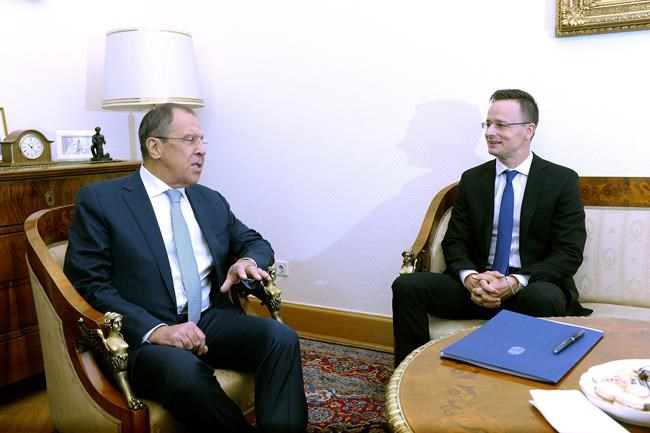Elevate your local knowledge
Sign up for the iNFOnews newsletter today!
Sign up for the iNFOnews newsletter today!
Selecting your primary region ensures you get the stories that matter to you first.

BUDAPEST, Hungary – The European Union’s decision on whether to extend economic sanctions against Russia for its actions in Ukraine should be transparent and discussed openly, Hungary’s foreign minister said Wednesday.
Foreign Minister Peter Szijjarto said after meeting Russian counterpart Sergey Lavrov that Hungary will not accept an “automatic” decision regarding the sanctions currently in place until the end of July.
“EU members have to make a decision about (the sanctions) at the highest level,” Szijjarto said. “What we will not accept for sure is for the decision to take place below the surface.”
Hungary has expressed opposition to the sanctions because Russia is an important market for Hungarian goods, but has said it will abide by the EU position.
“Boosting Europe’s competitiveness can only be possible if pragmatic and rational co-operation is established between Europe and Russia based on mutual respect and respect for international law,” Szijjarto said. “I believe that this position is being shared increasingly across Europe.”
Lavrov did not speculate about the possible end of the sanctions.
“We have said repeatedly that we are planning our work in the current conditions,” Lavrov said. “We have everything we need to solve the objective difficulties caused by the sanctions … especially concerning the anti-Russian moves of some Western leaders.”
Szijjarto rejected criticism that Hungary, which is expanding its Soviet-built nuclear power plant with Russian financial and technical assistance, is acting as a “Trojan horse” for Russia in the EU.
“It is dangerous if anyone has to give explanations for inviting the Russian foreign minister,” Szijjarto said.
This site is protected by reCAPTCHA and the Google Privacy Policy and Terms of Service apply.
Want to share your thoughts, add context, or connect with others in your community?
You must be logged in to post a comment.